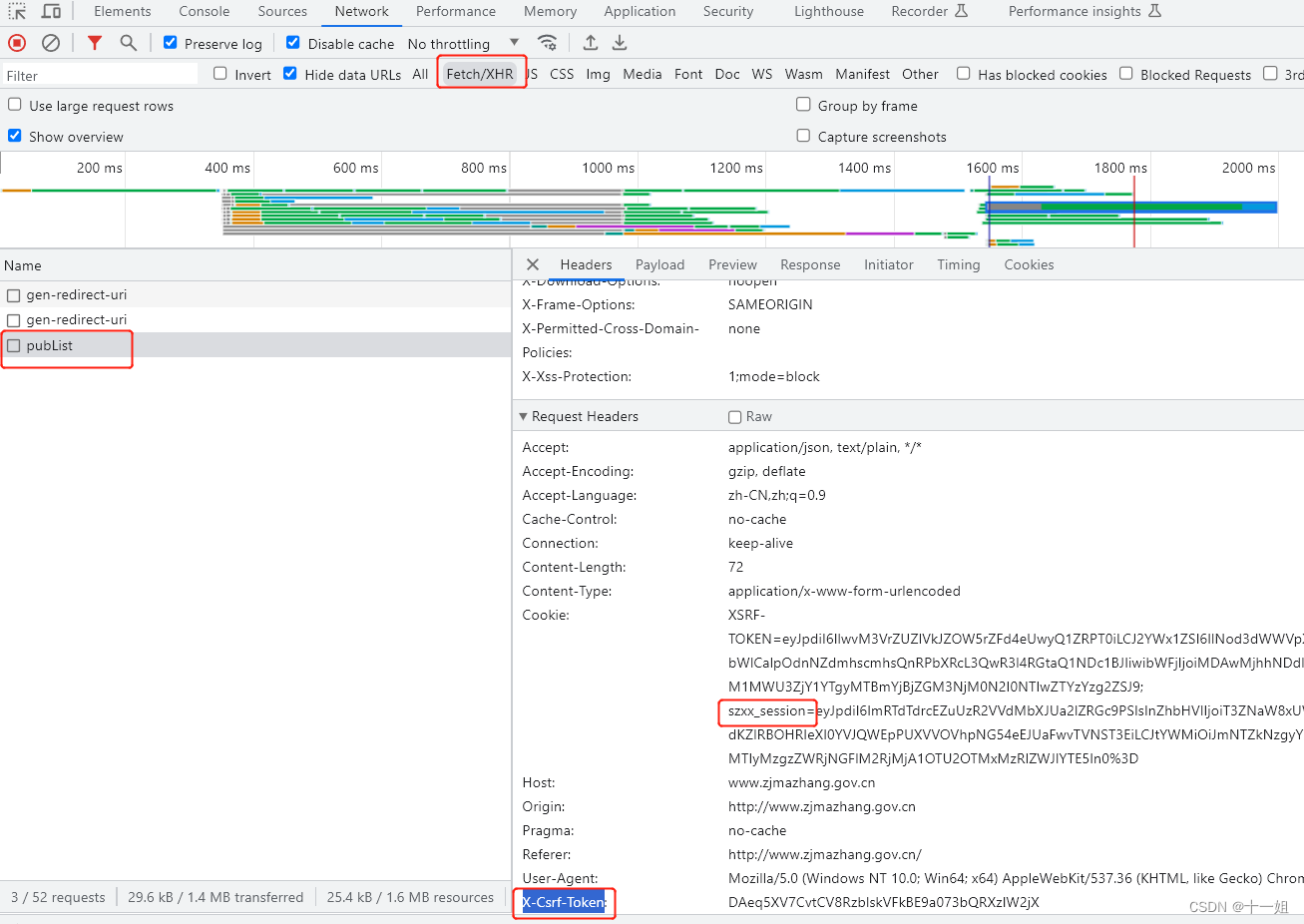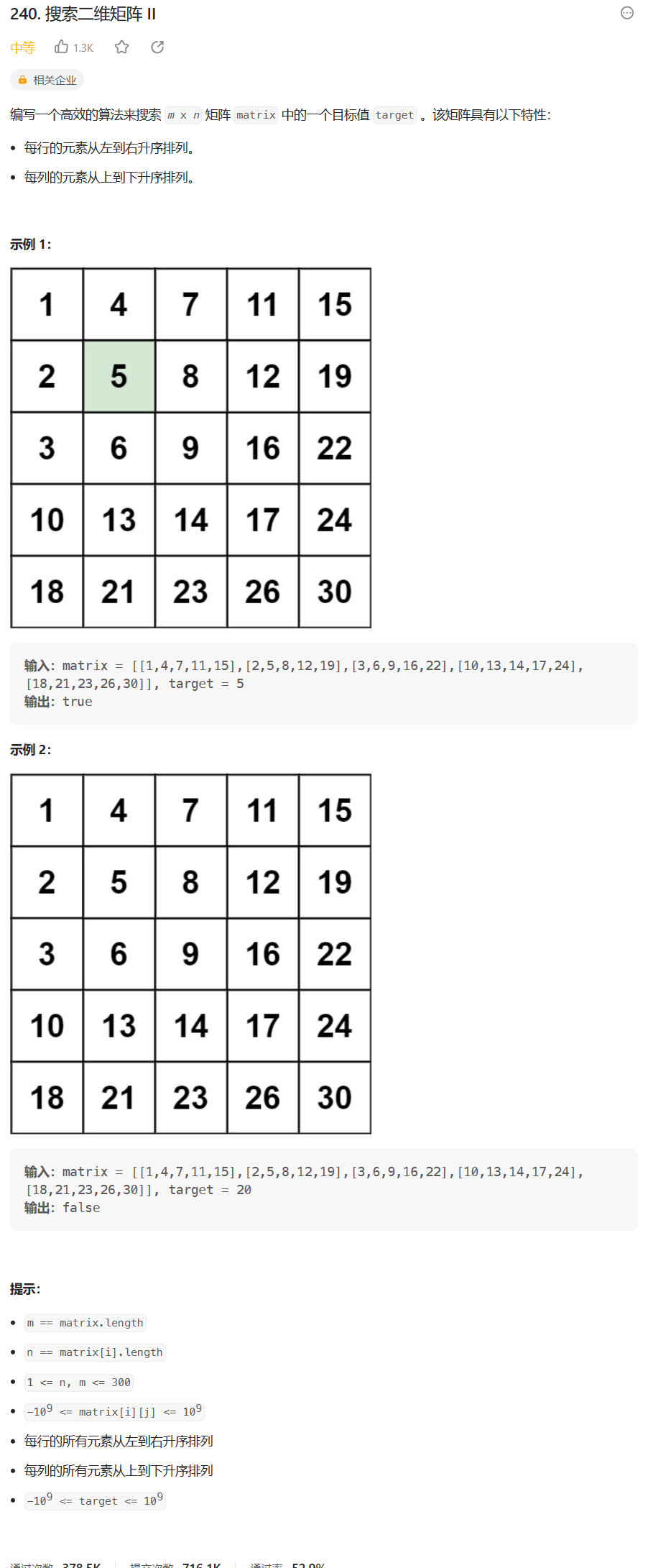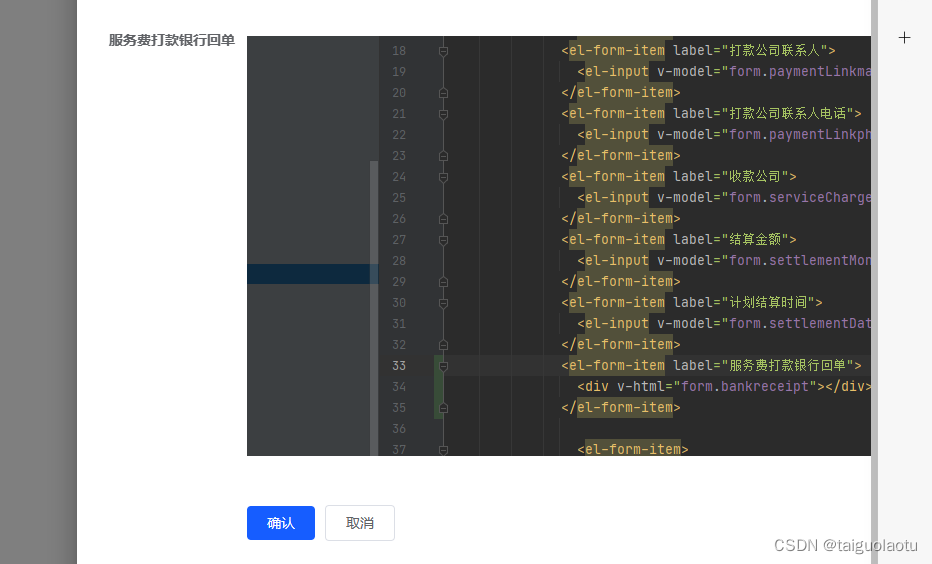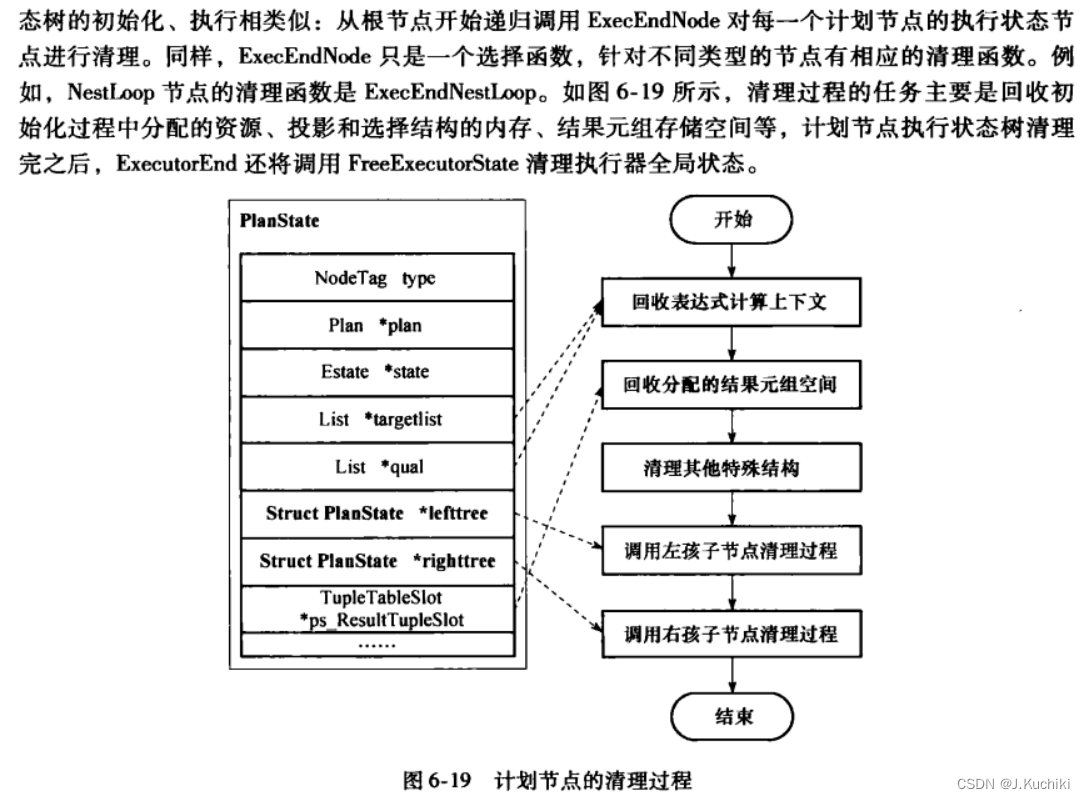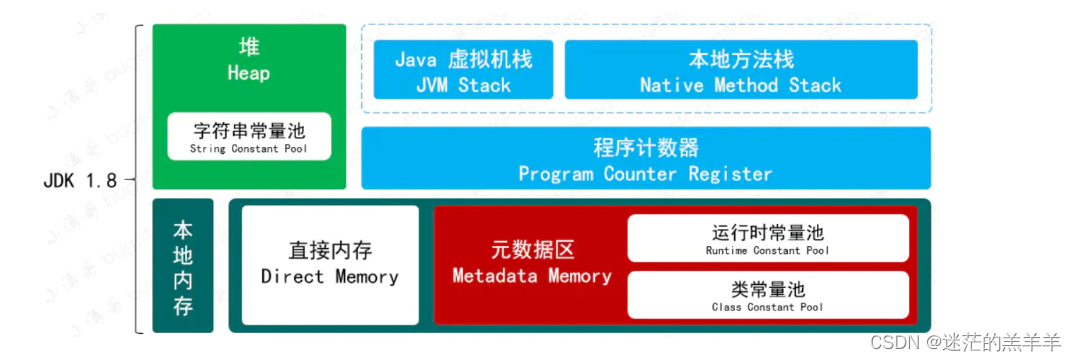本期我们来深入list的实现原理:
目录
一、STL中的list
二、list的模拟实现
2.1 搭建list的框架
2.2 list迭代器的实现
2.2.1 普通迭代器的实现
2.2.2 const类型迭代器的实现
2.2.3 迭代器中->运算符重载实现
2.3 其他功能函数的实现
2.3.1 insert
2.3.2 erase
2.3.3 clean
2.3.4 析构函数
2.3.5 迭代器区间构造函数
2.3.6 拷贝构造函数
2.3.7 operator=
三、模拟实现list完整代码
一、STL中的list
我们先来看看在STL中是怎么定义list中的节点的:
template <class T>
struct __list_node {
typedef void* void_pointer;
void_pointer next;
void_pointer prev;
T data;
};
我们可以看到定义该节点时用的是struct关键字而不是class,这是因为在STL标准库想要开放节点中的指针供编译人员访问。
下面是对于list这个类的定义:
template <class T, class Alloc = alloc>
class list {
protected:
typedef void* void_pointer;
typedef __list_node<T> list_node;
typedef simple_alloc<list_node, Alloc> list_node_allocator;
public:
typedef T value_type;
typedef value_type* pointer;
typedef const value_type* const_pointer;
typedef value_type& reference;
typedef const value_type& const_reference;
typedef list_node* link_type;
typedef size_t size_type;
typedef ptrdiff_t difference_type;
public:
typedef __list_iterator<T, T&, T*> iterator;
typedef __list_iterator<T, const T&, const T*> const_iterator;
}剩下的源码我们就不过多解释,下面开始模拟实现:
二、list的模拟实现
2.1 搭建list的框架
我们先来简单写一写list的简单主要功能,搭建一个框架:
namespace lhs
{
template<class T>
struct _list_node
{
_list_node<T>* _prev;
_list_node<T>* _next;
T _data;
//构造函数
_list_node(const T& val = T())
:_prev(nullptr),
_next(nullptr),
_data(val)
{}
};
template<class T>
class list
{
public:
typedef _list_node<T> node;
//构造函数
list()
{
_head = new node;
_head->_next = _head;
_head->_prev = _head;
}
//尾插
void push_back(const T& val)
{
node* newnode = new node(val);
newnode->_next = _head;
newnode->_prev = _head->_prev;
_head->_prev->_next = newnode;
_head->_prev = newnode;
}
//头插
void push_front(const T& val)
{
node* newnode = new node(val);
newnode->_next = _head->_next;
newnode->_prev = _head;
_head->_next->_prev = newnode;
_head->_next = newnode;
}
private:
node* _head;
};
}
上面对于可以熟练运用带头双向循环链表的我们来说就是小菜一碟~
2.2 list迭代器的实现
2.2.1 普通迭代器的实现
我们在string和vector中实现迭代器十分的容易,因为它们的存储空间物理上都是连续的,我们可以对重命名的迭代器++即可。但是在list中就不可能了,因为基于链表实现的list存储空间并非是连续的。所以想要实现list中的迭代器要自定义另一个类型进行运算符重载:
template<class T>
struct __list_iterator
{
typedef _list_node<T> node;
typedef __list_iterator<T> self;
node* _node;
//构造函数
__list_iterator(node* t)
:_node(t)
{}
//运算符重载
T& operator*()
{
return _node->_data;
}
self& operator++()//前置++
{
_node = _node->_next;
return *this;
}
self& operator++(int)//后置++
{
self tmp(*this);//保存++之前的数据
_node = _node->_next;
return tmp;
}
self& operator--()//前置--
{
_node = _node->_prev;
return *this;
}
self& operator--(int)//后置--
{
self tmp(*this);//保存++之前的数据
_node = _node->_prev;
return tmp;
}
self& operator-(size_t n)
{
for (size_t i = 0; i < n; ++i)
{
_node = _node->_prev;
}
return *this;
}
self& operator+(size_t n)
{
for (size_t i = 0; i < n; ++i)
{
_node = _node->_next;
}
return *this;
}
bool operator!=(self n)
{
return _node != n._node;
}
bool operator==(self n)
{
return _node == n._node;
}
};有了这个自定义类,我们直接将list中的节点传入该类型让其进行运算符重载即可:
template<class T>
class list
{
public:
typedef _list_node<T> node;
//构造函数
list()
{
_head = new node;
_head->_next = _head;
_head->_prev = _head;
}
//迭代器
typedef __list_iterator<T> iterator;
iterator begin()
{
return iterator(_head->_next);
}
iterator end()
{
return iterator(_head);
}
private:
node* _head;
};2.2.2 const类型迭代器的实现
但是对于const成员呢?我们可以像下面代码一样构建一个const版本的迭代器:
但是这个const迭代器和普通迭代器的唯一区别只在于重载*运行时的返回值不同,如果这样子写会造成代码的冗余
下面我们可以在自定义实现的迭代器里多加入一个模版参数Ref,来判断list调用迭代器时传入的是否是const类型的节点:
template<class T, class Ref>//增加一个Ref模版参数来判断调用的是什么类型的迭代器
struct __list_iterator
{
typedef _list_node<T> node;
typedef __list_iterator<T, Ref> self;
node* _node;
//构造函数
__list_iterator(node* t)
:_node(t)
{}
//运算符重载
Ref operator*()//通过第二个模版参数确定是不是const类型的返回值
{
return _node->_data;
}
};
template<class T>
class list
{
public:
typedef _list_node<T> node;
//构造函数
list()
{
_head = new node;
_head->_next = _head;
_head->_prev = _head;
}
//迭代器
typedef __list_iterator<T, T&> iterator;//第二个模版参数传入T&调用普通迭代器
typedef __list_iterator<T, const T&> const_iterator;//第二个模版参数传入const T&调用const迭代器
iterator begin()
{
return iterator(_head->_next);
}
iterator end()
{
return iterator(_head);
}
const_iterator begin()const
{
return const_iterator(_head->_next);
}
const_iterator end()const
{
return const_iterator(_head);
}
private:
node* _head;
};
2.2.3 迭代器中->运算符重载实现
如果list中存的是自定义类型的数据我们难免会用到->来访问具体数据
例如:
struct A
{
int _a1;
int _a2;
};
void test2()
{
list<A> l;
A a = { 7,8 };
l.push_back(a);
l.push_back(a);
l.push_back(a);
list<A>::iterator it = l.begin();
while (it != l.end())
{
std::cout << (*it)._a1 << "," << (*it)._a2 << std::endl;
++it;
}
std::cout << std::endl;
}
在上述代码中,我们想要对list中的A类型自定义变量具体成员进行访问,需要对迭代器*操作之后再加上.
这样十分的奇怪,不方便我们具体操作,所以下面我们来重载->操作符:
template<class T,class Ref>
struct __list_iterator
{
typedef _list_node<T> node;
typedef __list_iterator<T, Ref> self;
node* _node;
//构造函数
__list_iterator(node* t)
:_node(t)
{}
//运算符重载
T* operator->()
{
return &(_node->_data);
}
}
下面我们就可以使用->来访自定义类型的内部成员了:
void test2()
{
list<A> l;
A a = { 7,8 };
l.push_back(a);
l.push_back(a);
l.push_back(a);
list<A>::iterator it = l.begin();
while (it != l.end())
{
std::cout << it->_a1 << "," << it->_a2 << std::endl;
++it;
}
std::cout << std::endl;
}
不过上面测试代码奇怪的是:it后面加上->构成运算符重载,该运算符返回的是T*类型的地址所以后面还要加上->才能指向所要访问的成员变量才对啊,所以不应该是it->->_a1才对吗?
这是由于编译器对代码的优化,让我们可以少写一个->就可以直接访问到成员变量了,看起来更直观。
但是下面又出现了一个问题:如果我们使用const类型的迭代器返回的应该是const T*类型才对,那我们可以模仿之前const类型迭代器的实现,再加一个模版参数Ptr来判断传入的类型是否为const:
template<class T, class Ref, class Ptr>//增加两个Ref和Ptr模版参数来判断传入数据的类型
struct __list_iterator
{
typedef _list_node<T> node;
typedef __list_iterator<T, Ref, Ptr> self;
node* _node;
//构造函数
__list_iterator(node* t)
:_node(t)
{}
//运算符重载
Ref operator*()//通过第二个模版参数确定是不是const类型的返回值
{
return _node->_data;
}
Ptr operator->()//通过第三个模版参数确定是不是const类型的返回值
{
return &(_node->_data);
}
};
template<class T>
class list
{
public:
typedef _list_node<T> node;
//构造函数
list()
{
_head = new node;
_head->_next = _head;
_head->_prev = _head;
}
//迭代器
typedef __list_iterator<T, T&, T*> iterator;//第二和第三个模版参数传入T&和T*调用普通迭代器
typedef __list_iterator<T, const T&, const T*> const_iterator;//第二和第三个模版参数传入const T&和const T*调用const迭代器
iterator begin()
{
return iterator(_head->_next);
}
iterator end()
{
return iterator(_head);
}
const_iterator begin()const
{
return const_iterator(_head->_next);
}
const_iterator end()const
{
return const_iterator(_head);
}
private:
node* _head;
};
2.3 其他功能函数的实现
我们有了迭代器就好实现其各种函数了:
2.3.1 insert
//任意位置前插入数据
void insert(iterator pos, const T& val)
{
node* newnode = new node(val);
newnode->_next = pos._node;
newnode->_prev = pos._node->_prev;
pos._node->_prev->_next = newnode;
pos._node->_prev = newnode;
}有了insert函数,我们刚开始搭建的push_back和push_front函数就可以直接复用了:
//尾插
void push_back(const T& val)
{
insert(end(), val);
}
//头插
void push_front(const T& val)
{
insert(begin(), val);
}
2.3.2 erase
void erase(iterator pos)
{
assert(pos != end());//避免删除头节点
pos._node->_prev->_next = pos._node->_next;
pos._node->_next->_prev = pos._node->_prev;
delete pos._node;
}要注意了,使用erase函数后传入的迭代器会失效,因为其指向的空间会被释放。所以我们最好将erase这个函数设置一个返回值来进行修正:
iterator erase(iterator pos)
{
assert(pos != end());
node* next = pos._node->_next;
pos._node->_prev->_next = pos._node->_next;
pos._node->_next->_prev = pos._node->_prev;
delete pos._node;
return iterator(next);
}
有了erase函数,头删和尾删我们信手拈来:
//尾删
void pop_back()
{
erase(--end());
}
//头删
void pop_front()
{
erase(begin());
}2.3.3 clean
//删除所有有效数据
void clean()
{
iterator it = begin();
while (it != end())
{
it = erase(it);
}
}
2.3.4 析构函数
//析构
~list()
{
clean();
delete _head;
_head = nullptr;
}2.3.5 迭代器区间构造函数
template<class InputIterato>
list(InputIterato begin, InputIterato end)//迭代器区间构造
{
_head = new node;
_head->_next = _head;
_head->_prev = _head;
while (begin != end)
{
push_back(*begin);
++begin;
}
}
2.3.6 拷贝构造函数
list(const list<T>& val)
{
_head = new node;
_head->_next = _head;
_head->_prev = _head;
const_iterator it = val.begin();
while (it != val.end())
{
push_back(*it);
++it;
}
}
上面代码是一个比较传统的写法,下面我们可以先复用迭代器区间构造函数创建一个临时对象,再构建一个swap函数来交换this的头节点和临时对象的头节点即可:
void swap(list<T>& l)//交换
{
node* tmp = _head;
_head = l._head;
l._head = tmp;
}
list(const list<T>& val)
{
_head = new node;
_head->_next = _head;
_head->_prev = _head;
list<T> tmp(val.begin(), val.end());//创建临时对象
swap(tmp);//交换数据使this的头节点窃取临时对象的成果
}2.3.7 operator=
list<T>& operator=(list<T> val)//这里传参没有使用&是为了防止对val数据的破坏
{
swap(val);
return *this;
}注意上述代码传参使用&是为了让形参拷贝构造实参,防止swap函数将实参的数据进行交换
三、模拟实现list完整代码
#include<iostream>
#include<assert.h>
namespace lhs
{
template<class T>
struct _list_node
{
_list_node<T>* _prev;
_list_node<T>* _next;
T _data;
//构造函数
_list_node(const T& val = T())
:_prev(nullptr),
_next(nullptr),
_data(val)
{}
};
template<class T,class Ref,class Ptr>//增加两个Ref和Ptr模版参数来判断传入数据的类型
struct __list_iterator
{
typedef _list_node<T> node;
typedef __list_iterator<T, Ref, Ptr> self;
node* _node;
//构造函数
__list_iterator(node* t)
:_node(t)
{}
//运算符重载
Ref operator*()//通过第二个模版参数确定是不是const类型的返回值
{
return _node->_data;
}
Ptr operator->()//通过第三个模版参数确定是不是const类型的返回值
{
return &(_node->_data);
}
self& operator++()//前置++
{
_node = _node->_next;
return *this;
}
self& operator++(int)//后置++
{
self tmp(*this);//保存++之前的数据
_node = _node->_next;
return tmp;
}
self& operator--()//前置--
{
_node = _node->_prev;
return *this;
}
self& operator--(int)//后置--
{
self tmp(*this);//保存++之前的数据
_node = _node->_prev;
return tmp;
}
self& operator-(size_t n)
{
for (size_t i = 0; i < n; ++i)
{
_node = _node->_prev;
}
return *this;
}
self& operator+(size_t n)
{
for (size_t i = 0; i < n; ++i)
{
_node = _node->_next;
}
return *this;
}
bool operator!=(self n)
{
return _node != n._node;
}
bool operator==(self n)
{
return _node == n._node;
}
};
template<class T>
class list
{
public:
typedef _list_node<T> node;
//构造函数
list()
{
_head = new node;
_head->_next = _head;
_head->_prev = _head;
}
template<class InputIterato>
list(InputIterato begin, InputIterato end)//迭代器区间构造
{
_head = new node;
_head->_next = _head;
_head->_prev = _head;
while (begin != end)
{
push_back(*begin);
++begin;
}
}
void swap(list<T>& l)//交换
{
node* tmp = _head;
_head = l._head;
l._head = tmp;
}
list(const list<T>& val)
{
_head = new node;
_head->_next = _head;
_head->_prev = _head;
list<T> tmp(val.begin(), val.end());//创建临时对象
swap(tmp);//交换数据使this的头节点窃取临时对象的成果
}
//运算符重载
list<T>& operator=(list<T> val)//这里传参没有使用&是为了防止对val数据的破坏
{
swap(val);
return *this;
}
//尾插
void push_back(const T& val)
{
insert(end(), val);
}
//头插
void push_front(const T& val)
{
insert(begin(), val);
}
//迭代器
typedef __list_iterator<T, T&, T*> iterator;//第二和第三个模版参数传入T&和T*调用普通迭代器
typedef __list_iterator<T, const T&, const T*> const_iterator;//第二和第三个模版参数传入const T&和const T*调用const迭代器
iterator begin()
{
return iterator(_head->_next);
}
iterator end()
{
return iterator(_head);
}
const_iterator begin()const
{
return const_iterator(_head->_next);
}
const_iterator end()const
{
return const_iterator(_head);
}
//任意位置前插入数据
void insert(iterator pos, const T& val)
{
node* newnode = new node(val);
newnode->_next = pos._node;
newnode->_prev = pos._node->_prev;
pos._node->_prev->_next = newnode;
pos._node->_prev = newnode;
}
//删除任意位置的元素
iterator erase(iterator pos)
{
assert(pos != end());
node* next = pos._node->_next;
pos._node->_prev->_next = pos._node->_next;
pos._node->_next->_prev = pos._node->_prev;
delete pos._node;
return iterator(next);
}
//尾删
void pop_back()
{
erase(--end());
}
//头删
void pop_front()
{
erase(begin());
}
//删除所有有效数据
void clean()
{
iterator it = begin();
while (it != end())
{
it = erase(it);
}
}
//析构
~list()
{
clean();
delete _head;
_head = nullptr;
}
private:
node* _head;
};
}本期到这里又要结束了,感谢各位的阅览~
我们下期见~
